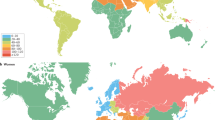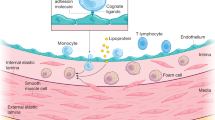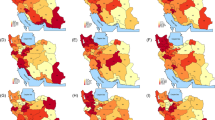Abstract
INHABITANTS of the highlands of New Guinea eat very little fat in their diet, have low levels of serum cholesterol, and rarely suffer from coronary heart disease1. This is in accord with experiences in other primitive races, and contrasts sharply with what is found among Australians and others of European origin, thus providing indirect support for the lipid infiltration theory of atherogenesis. With the thrombogenic theory in mind it would be valuable to gather information about coagulability of blood in different races, and this, to a limited extent, has been done in Australia and New Guinea.
This is a preview of subscription content, access via your institution
Access options
Subscribe to this journal
Receive 51 print issues and online access
$199.00 per year
only $3.90 per issue
Buy this article
- Purchase on Springer Link
- Instant access to full article PDF
Prices may be subject to local taxes which are calculated during checkout
Similar content being viewed by others
References
De Wolfe, M. S., and Whyte, H. M., Australasian Ann. Med., 7, 47 (1958).
Langan, T. A., Durrum, E. L., and Jenks, W. P., J. Clin. Invest., 34, 1427 (1955).
Rouser, G., White, S. G., and Schloredt, D., Biochim. Biophys. Acta, 28, 71 (1958).
Author information
Authors and Affiliations
Rights and permissions
About this article
Cite this article
GOLDRICK, R., WHYTE, H. Serum Lipoproteins and Blood Coagulation. Nature 182, 1743–1744 (1958). https://doi.org/10.1038/1821743a0
Issue Date:
DOI: https://doi.org/10.1038/1821743a0
Comments
By submitting a comment you agree to abide by our Terms and Community Guidelines. If you find something abusive or that does not comply with our terms or guidelines please flag it as inappropriate.



